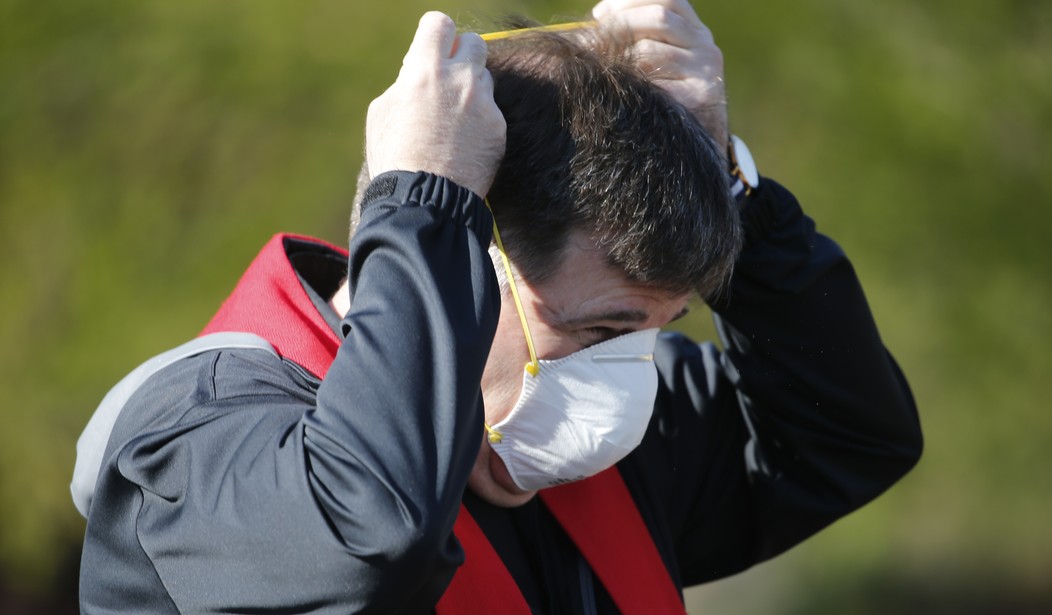It turns out Surgeon General Vice Admiral Jerome Adams was probably right. Masks don’t help prevent the spread of COVID-19. Not because barrier protections don’t help stop disease transmission. Medical professionals use them with good effect all the time. They are the basis for Universal Precautions that prevent the spread of bloodborne illnesses. But medical professionals and first responders are trained in their use. The general public is not.
Case in point. Governor J.B. Pritzker has made masks mandatory in Illinois effective May 1. In response to this, one community has decided to politicize the order and is putting out the following guidance:
Since the CDC recommended everyone wears face masks when out in public and Governor J.B. Pritzker is mandating Illinois residents wear them starting May 1st, we will begin to see them more frequently. However, for some communities, that causes anxiety. The Village of a Thousand Elders is creating a safety initiative called “Tip Your Mask” to help prevent confusion and racial biases.
“Tip Your Mask” is in coordination with various police departments in Illinois. When you go into a store or building, you’re now asked to “tip your mask” by lowering it slightly so the business owner can see your face.
As someone trained in the use of PPE this made my head ache. Then I saw the poster that accompanies the program.
When you go into a store, you're now asked to "tip your mask" by lowering it slightly so the business owner can see your face. You should wash your hands or sanitize right after. https://t.co/pdukL54tAu
— KWQC TV6 News (@kwqcnews) April 24, 2020
That simple gesture depicted in the poster completely negates the benefit of wearing the mask. The germs are supposed to be on the outside of the mask which you are never supposed to touch the front of with your bare hands. Especially when you may have been wearing the mask for hours in multiple locations. The public is reusing PPE or fashioning their own. Healthcare providers don and doff equipment multiple times and use new equipment several times during the course of caring for patients.
The stated rationale is to relieve shop owner anxiety regarding people wearing masks:
Reverend Wonder Harris who founded the Village of A Thousand Elders explains, “if people were to commit a crime, they wouldn’t tip the mask because they’d be caught on camera.” He visited various local businesses in East Moline and said business owners agreed that tipping masks would ease their minds to know a customer is just inside to shop, and not commit a crime.
The program advocates washing your hands as soon as is practical after tipping your mask. If that means after you have made your purchases and get home, just don’t wear the mask. If after you have touched the outside of your mask, touched the cart, the purchases you’ve made, your steering wheel and brought your purchases home, it has provided zero protection. Especially if you had been in close contact wearing the mask in other quarters prior to going to the store.
Normally I tell people to embrace the power of ‘and.’ In this case, it is really an either-or. Either you require masks and teach people the appropriate way to utilize them, placing a priority on public health. Or you don’t and prioritize public safety. You really cannot effectively do both.
Even with Georgia reopening, masks are still required of restaurant staff and other employees that work with the public such as hairdressers. Even some retail outlets are requiring them in departments where plexiglass barriers can’t be used effectively. I watch how they are being worn and how the employees are handling them and cringe. Adjusting them constantly due to poor fit, letting them sag below their nose, and pushing them up by the front make them quite literally useless in preventing disease transmission.
Perhaps these policies are meant to stem fear of disease transmission. However, those of us who understand how to use this equipment know better. These policies will provide a false sense of security and make people less attentive to the things they can effectively control. Maintain your social distance, consciously avoid touching your face and rubbing your eyes. And for heaven’s sake wash your hands.










Join the conversation as a VIP Member